
Research
ESR Individual Research Projects
Industry Partner: Blueprint Genetics Oy, Dr Samuel Myllykangas
 My name is Nidhi and I am from Chennai, a city in South India. Growing up I loved biology and was always interested in studying the brain. My career into academia started with a bachelor’s in Biotechnology from Ramaiah Institute of Technology in Bangalore, India. It was during my bachelor thesis at NCBS under Dr. Hiyaa Ghosh that my interest in Neuroscience really kicked off. I studied transcription factors implicated in adult neurogenesis. Following this, I had the great opportunity of doing my master’s at the Graduate School of Systemic Neurosciences, Ludwig Maximilians University (GSN-LMU) in Munich, Germany. I did my master thesis at the Max Planck Institute of Psychiatry under the supervision of Dr. Michael Ziller. My master thesis aimed at looking into risk variants in schizophrenia in stem cell-derived neurons and it was here that I developed a skill-set in culturing induced pluripotent stem cells.
My name is Nidhi and I am from Chennai, a city in South India. Growing up I loved biology and was always interested in studying the brain. My career into academia started with a bachelor’s in Biotechnology from Ramaiah Institute of Technology in Bangalore, India. It was during my bachelor thesis at NCBS under Dr. Hiyaa Ghosh that my interest in Neuroscience really kicked off. I studied transcription factors implicated in adult neurogenesis. Following this, I had the great opportunity of doing my master’s at the Graduate School of Systemic Neurosciences, Ludwig Maximilians University (GSN-LMU) in Munich, Germany. I did my master thesis at the Max Planck Institute of Psychiatry under the supervision of Dr. Michael Ziller. My master thesis aimed at looking into risk variants in schizophrenia in stem cell-derived neurons and it was here that I developed a skill-set in culturing induced pluripotent stem cells.
For my PhD I will work on novel neuroendocrine and ovarian genes in female fertility. I will be focused on looking at key genes and molecular players involved in the ontogeny of gonadotropin releasing hormone neurons (GnRH neurons) in an in-vitro stem- cell model. The novelty of this project comes from the need to have a viable, functional in-vitro system to model reproductive diseases like Kallmann Syndrome and Congenital Hypogonadotropic Hypogonadism. Until we understand ontogeny this will continue to be a challenge.
Publications:
Yellapragada, V., Eskici, N., Wang, Y., Madhusudan, S., Vaaralahti, K., Tuuri, T., & Raivio, T. (2022). FGF8–FGFR1 signaling regulates human GnRH neuron differentiation in a time- and dose-dependent manner. Disease Models & Mechanisms, 15(8). https://doi.org/10.1242/dmm.049436
Wang, Y., Madhusudan, S., Cotellessa, L., Kvist, J., Eskici, N., Yellapragada, V., Pulli, K., Lund, C., Vaaralahti, K., Tuuri, T., Giacobini, P., & Raivio, T. (2022). Deciphering the transcriptional landscape of human pluripotent stem Cell-Derived GNRH neurons: The role of WNT signaling in patterning the neural fate. Stem Cells, 40(12), 1107–1121. https://doi.org/10.1093/stmcls/sxac069
Eskici, N., Madhusudan, S., Vaaralahti, K., Yellapragada, V., Gómez-Sánchez, C. E., Kärkinen, J., Almusa, H., Brandstack, N., Miettinen, P. J., Wang, Y., & Raivio, T. (2023). Congenital hypogonadotropic hypogonadism in a patient with a de novo POGZ mutation. European Journal of Endocrinology, 189(2), 271–280. https://doi.org/10.1093/ejendo/lvad111
Li, S., Wang, Y., Van Der Stoel, M. M., Zhou, X., Madhusudan, S., Kanerva, K., Nguyen, V. D., Eskici, N., Olkkonen, V. M., Zhou, Y., Raivio, T., & Ikonen, E. (2024). HiHo-AID2: boosting homozygous knock-in efficiency enables robust generation of human auxin-inducible degron cells. Genome Biology, 25(1). https://doi.org/10.1186/s13059-024-03187-w
Industry Partner: S.I.S.Me.R, Dr. Luca Gianaroli
 My name is Natàlia Pujol Gualdo and I am from Solsona, a small town near Barcelona. During my bachelor’s degree in Biomedical Science at University of Barcelona, I had the opportunity to complete an internship in the department of Anatomy, RadboudUMC, Nijmegen, The Netherlands. There I investigated different nutritional strategies that might prevent obesity development in a mouse model, under the supervision of Dr. Ilse Arnoldussen and Prof. Amanda Kiliaan. After this period, I enrolled in the Translational Research master program offered by the Vall Hebron Research Institute, during which I completed an internship in the Unit of Psychiatric Genetics under the supervision of Dr. María Soler Artigas and Dr. Marta Ribasés. This experience allowed me to get a handle on different biostatistical and bioinformatic frameworks, as well as to have a closer look into genome-wide association studies and assess potential avenues for integrative approaches that combine genomics and transcriptomics in order to provide a better understanding of attention-deficit/hyperactivity disorder (ADHD).
My name is Natàlia Pujol Gualdo and I am from Solsona, a small town near Barcelona. During my bachelor’s degree in Biomedical Science at University of Barcelona, I had the opportunity to complete an internship in the department of Anatomy, RadboudUMC, Nijmegen, The Netherlands. There I investigated different nutritional strategies that might prevent obesity development in a mouse model, under the supervision of Dr. Ilse Arnoldussen and Prof. Amanda Kiliaan. After this period, I enrolled in the Translational Research master program offered by the Vall Hebron Research Institute, during which I completed an internship in the Unit of Psychiatric Genetics under the supervision of Dr. María Soler Artigas and Dr. Marta Ribasés. This experience allowed me to get a handle on different biostatistical and bioinformatic frameworks, as well as to have a closer look into genome-wide association studies and assess potential avenues for integrative approaches that combine genomics and transcriptomics in order to provide a better understanding of attention-deficit/hyperactivity disorder (ADHD).
During my PhD, I will contribute to the advancement in genetic research on female reproductive health through one of the most promising tools nowadays: the availability of population-based and disease-specific biobanks. We will apply the latest methods in genetic epidemiology in order to identify novel genetic associations of reproductive health related phenotypes and further construct polygenic risk scores (PRS) to improve the predictive power of PRSs for identifying women at higher or lower risk for specific gynecological conditions, their subtypes and comorbidities.
I believe this MATER framework provides a unique opportunity towards unravelling the underpinning mechanisms of reproductive traits and reproductive ageing and has the potential to contribute to prominent scientific advances. I am excited to see how this joint effort will also help to reduce stigma towards women who suffer from these diseases, which will eventually contribute to societal progress and ultimately improve the life and well-being of women suffering from these conditions.
Publications:
Tyrmi, J., Arffman, R. K., Pujol-Gualdo, N., Kurra, V., Morin‐Papunen, L., Sliz, E., Piltonen, T., Laisk, T., Kettunen, J., & Laivuori, H. (2021). Leveraging Northern European population history: novel low-frequency variants for polycystic ovary syndrome. Human Reproduction, 37(2), 352–365. https://doi.org/10.1093/humrep/deab250
Zhu, J., Pujol-Gualdo, N., Wittemans, L. B. L., Lindgren, C. M., Laisk, T., Hirschhorn, J. N., & Chan, Y. (2021). Evidence from men for ovary-independent effects of genetic risk factors for polycystic ovary syndrome. The Journal of Clinical Endocrinology and Metabolism, 107(4), e1577–e1587. https://doi.org/10.1210/clinem/dgab838
Pujol-Gualdo, N., Läll, K., Lepamets, M., Rossi, H., Arffman, R. K., Piltonen, T., Mägi, R., & Laisk, T. (2022). Advancing our understanding of genetic risk factors and potential personalized strategies for pelvic organ prolapse. Nature Communications, 13(1). https://doi.org/10.1038/s41467-022-31188-5
Pujol-Gualdo, N., Mägi, R., & Laisk, T. (2023). Genome-wide association study meta-analysis supports association between MUC1 and ectopic pregnancy. Human Reproduction. https://doi.org/10.1093/humrep/dead217
Koel, M., Võsa, U., Jõeloo, M., Läll, K., Gualdo, N. P., Laivuori, H., Lemmelä, S., Daly, M., Palta, P., Mägi, R., & Laisk, T. (2023). GWAS meta-analyses clarify the genetics of cervical phenotypes and inform risk stratification for cervical cancer. Human Molecular Genetics Online/Human Molecular Genetics, 32(12), 2103–2116. https://doi.org/10.1093/hmg/ddad043
Pujol-Gualdo, N., Karjalainen, M. K., Võsa, U., Arffman, R. K., Mägi, R., Ronkainen, J., Laisk, T., & Piltonen, T. (2023). Circulating anti-Müllerian hormone levels in pre-menopausal women: novel genetic insights from a GWAS meta-analysis. medRxiv (Cold Spring Harbor Laboratory). https://doi.org/10.1101/2023.09.07.23295182 – preprint
Industry Partner: Blueprint Genetics Oy, Dr Samuel Myllykangas
 Hello, my name is Laura and I was born in the city of Antwerp, Belgium. My scientific career began in 2015 at the Catholic University of Leuven (KU Leuven), where I first pursued a Bachelor of Biomedical Sciences. During my studies, I was exposed to multiple different research fields, however I became particularly interested in developmental biology in my third year. After obtaining my bachelor’s degree in 2018, I continued my studies at KU Leuven with a Master of Biomedical Sciences. It was during my first master year that I discovered the wonderful world of stem cell biology. In that same year, I had the opportunity to work for six weeks in the group of Prof. Dr. Maurilio Sampaolesi. The project that I worked on focused on using induced pluripotent stem cells (iPSCs) as a potential treatment for Muscular Dystrophies, which further intensified my adoration for stem cell research. Therefore, I ended up doing my master’s thesis under Prof. Sampaolesi’s supervision. The focus of my thesis was to improve the therapeutic efficacy of iPSC-derived mesodermal progenitors as a curative treatment for Muscular Dystrophies. In June 2020, amid a pandemic, I successfully defended my master’s thesis and graduated from KU Leuven.
Hello, my name is Laura and I was born in the city of Antwerp, Belgium. My scientific career began in 2015 at the Catholic University of Leuven (KU Leuven), where I first pursued a Bachelor of Biomedical Sciences. During my studies, I was exposed to multiple different research fields, however I became particularly interested in developmental biology in my third year. After obtaining my bachelor’s degree in 2018, I continued my studies at KU Leuven with a Master of Biomedical Sciences. It was during my first master year that I discovered the wonderful world of stem cell biology. In that same year, I had the opportunity to work for six weeks in the group of Prof. Dr. Maurilio Sampaolesi. The project that I worked on focused on using induced pluripotent stem cells (iPSCs) as a potential treatment for Muscular Dystrophies, which further intensified my adoration for stem cell research. Therefore, I ended up doing my master’s thesis under Prof. Sampaolesi’s supervision. The focus of my thesis was to improve the therapeutic efficacy of iPSC-derived mesodermal progenitors as a curative treatment for Muscular Dystrophies. In June 2020, amid a pandemic, I successfully defended my master’s thesis and graduated from KU Leuven.
During my PhD I will focus on establishing a model for ovarian development using human pluripotent stem cells. More specifically, I will be optimising an existing differentiation protocol for the generation of granulosa-like cells. Using the CRISPR/Cas9 genome-editing system I will create reporter lines to facilitate the generation of the ovarian model and induction lines to study the function of certain genes which are imperial for ovarian development. Additionally, state of the art RNA sequencing methods will be utilised to uncover new (marker)genes of human ovarian development, determine their roles therein and to reveal underlying signalling pathways. The obtained research results will provide valuable insight and novel information on human ovarian development and sex determination. This knowledge will increase our understanding of pathological gonadal development, which often underlies Disorders of Sex Development.
The opportunity to embark on this PhD journey within the MATER consortium is a once in a lifetime opportunity and I am beyond grateful to be part of this wonderful group of early-stage researchers. I hope we will be able to contribute in a meaningful way towards a greater understanding of female reproductivity and care.
Publications:
Danti, L., Lundin, K., Sepponen, K., Yohannes, D. A., Kere, J., Tuuri, T., & Tapanainen, J. S. (2023). CRISPR/Cas9-mediated activation of NR5A1 steers female human embryonic stem cell-derived bipotential gonadal-like cells towards a steroidogenic cell fate. Journal of Ovarian Research, 16(1). https://doi.org/10.1186/s13048-023-01264-5
Industry partner: Competence Centre on Health Technologies, Dr. Kaarel Krjutškov
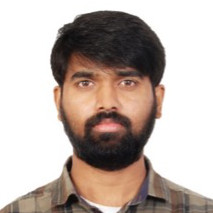 My name is Sharath and I am of Indian nationality. I have got interest in choosing the research career during my bachelor’s degree in BSc in Biotechnology where I got to study and understand about biochemical, molecular mechanisms and developmental biology. Further I have joined for masters in Biochemistry at ICAR-National Dairy Research Institute, Karnal (India). I had worked for 1year research project on toxico-genomics of TCDD in milk and studied the toxicological effects in bovine hepatocytes and granulosa cells. This intrigued my interest into biomedical research. Further I had worked as research fellow in Nuclear Receptor biology laboratory at Jawaharlal Nehru University, Delhi, India. I got hands on experience to work and explore nuclear receptor mechanism, cell signaling mechanisms and different microscopic and molecular techniques. Therefore, I decided to continue my career in the research and find possible therapeutic solutions for human health.
My name is Sharath and I am of Indian nationality. I have got interest in choosing the research career during my bachelor’s degree in BSc in Biotechnology where I got to study and understand about biochemical, molecular mechanisms and developmental biology. Further I have joined for masters in Biochemistry at ICAR-National Dairy Research Institute, Karnal (India). I had worked for 1year research project on toxico-genomics of TCDD in milk and studied the toxicological effects in bovine hepatocytes and granulosa cells. This intrigued my interest into biomedical research. Further I had worked as research fellow in Nuclear Receptor biology laboratory at Jawaharlal Nehru University, Delhi, India. I got hands on experience to work and explore nuclear receptor mechanism, cell signaling mechanisms and different microscopic and molecular techniques. Therefore, I decided to continue my career in the research and find possible therapeutic solutions for human health.
My PhD project will be continued under the guidance of Dr Juha Tapanainen and Dr Timo tuuri at University of Helsinki, Finland as main host and Dr Andres salumets at University of Tartu, Estonia as co-host university. As an ESR, I will be exploring the functional role of miRNAs in the ovarian folliculogenesis and better understand the therapeutic possibilities for the reproductive disorders.
Industry Partner: IGENOMIX, Prof. Carlos Simón
 My name is Meruert, I am from Kazakhstan. I am a gynaecologist and before I decided to continue my career path in biomedical research, I worked at clinics for two years. During this time, I became interested in mechanisms of human diseases and in 2015 I started MSc programme “Molecular and Cellular Basis of Diseases” at the University of Sheffield, UK. I was studying the role of RNA/DNA hybrids in human embryonic stem cells in a group of Dr. Ivana Barbaric. After completion, I moved to Canada and became a part of “Molecular and Cellular Medicine” programme at the University of Montreal (Montreal Research Clinical Institute). There, I joined a research project of Prof. Francois Robert studying how a mutated chromatin remodeler affects histone chaperone’s recruitment to chromatin. Then, I worked in a group of Prof. Marlene Oeffinger on a fundamental role of ‘specialised’ ribosomes. Afterwards, I moved back to my home country and worked as a lecturer of Molecular Biology (‘Molecular Evolution of Biosystems’ course) and co-supervised thesis writing up of two Ed.M students.
My name is Meruert, I am from Kazakhstan. I am a gynaecologist and before I decided to continue my career path in biomedical research, I worked at clinics for two years. During this time, I became interested in mechanisms of human diseases and in 2015 I started MSc programme “Molecular and Cellular Basis of Diseases” at the University of Sheffield, UK. I was studying the role of RNA/DNA hybrids in human embryonic stem cells in a group of Dr. Ivana Barbaric. After completion, I moved to Canada and became a part of “Molecular and Cellular Medicine” programme at the University of Montreal (Montreal Research Clinical Institute). There, I joined a research project of Prof. Francois Robert studying how a mutated chromatin remodeler affects histone chaperone’s recruitment to chromatin. Then, I worked in a group of Prof. Marlene Oeffinger on a fundamental role of ‘specialised’ ribosomes. Afterwards, I moved back to my home country and worked as a lecturer of Molecular Biology (‘Molecular Evolution of Biosystems’ course) and co-supervised thesis writing up of two Ed.M students.
In 2020, I joined the MATER Innovative Training Network in Female Reproductive Care under the H2020 Marie Sklodowska-Curie grant. I am studying immunogenomic causes of a gynaecological disease called endometriosis. Endometriosis affects every tenth woman of reproductive age and apart from chronic pelvic pain causes infertility. Currently, the diagnosis can be done only after surgery. In my project, I study blood and endometrial tissue samples from endometriosis patients to identify immune molecules corresponding to endometriosis. For that, I use state-of-the-art immunology and immunogenomic methods and bioinformatic tools for data analysis. We believe that based on the new knowledge, it will be possible to establish a new concept for non-invasive testing of endometriosis disease.
Industry Partner: IGENOMIX, Prof. Carlos Simón
 I am Yiqun Tang and I come from China. In 2017, I graduated from Capital Medical University in China with a master’s degree, where I started my academic path and developed a strong interest in endometrial stem cells (enSCs) and cell therapy.
I am Yiqun Tang and I come from China. In 2017, I graduated from Capital Medical University in China with a master’s degree, where I started my academic path and developed a strong interest in endometrial stem cells (enSCs) and cell therapy.
After graduation, I joined an Ob/Gyn residency training program. Three years of training experience made me realize the importance of fundamental research in improving women’s reproductive health. Especially the endometrial deficiency hampers the successful rate of IVF more frequently. There are no effective treatments currently due to the unclear mechanisms of endometrium regeneration.
To continue my aspirations of endometrial stem cells and tissue regeneration, I am looking forward to my doctoral study at the Karolinska Institutet and the University of Oulu. My Ph.D. research project will mainly focus on endometrial regeneration. I will study the heterogeneity of endometrial stem cells (enSCs) in healthy and infertile women, characterized by the reduced pool of endometrial enSCs and impaired endometrial regeneration. To gain further insight into the difference of enSCs from infertile and fertile women, I aim at identifying differential expression of genes in thin endometrium, the role of niche factors related to hypoxia on the function of endometrial MSCs. I also aim at identifying endometrial cell-specific markers during the receptive phase. we hope to provide in-depth knowledge about the differences in the phenotype of cells and niche factors that are involved in endometrial regeneration. Besides, I will explore the cell-type-specific endometrial receptivity biomarkers in fertile women. In conclusion, we are hoping to unravel the mystery of endometrium regeneration on cellular, molecular, and gene level.
Publications:
Tang, Y., Ponandai-srinivasan, S., Frisendahl, C., Andersson, J.K., Pavone, D., Stewart, E.A., Lalitkumar, P.G.L., Korsching, E., Bogavarappu, N.R. and Gemzell-Danielsson, K. (2023). Bromocriptine inhibits proliferation in the endometrium from women with adenomyosis. Frontiers in Endocrinology, 14. https://doi.org/10.3389/fendo.2023.1026168.
Tang, Y., Frisendahl, C., Lalitkumar, P. G., Danielsson, K. G. (2023). An update on Experimental therapeutic strategies for thin endometrium. Endocrines, 4(4), 672–684. https://doi.org/10.3390/endocrines4040048
Tang, Y.;, Boggavarapu, N. R., Aronsson, A., Danielsson, K. G., & Lalitkumar, P. G. (2024). Global Transcriptomic Analysis of Placentas from Women with Gestational SARS-CoV-2 Infection during the Third Trimester of Pregnancy. International Journal of Molecular Sciences, 25(3), 1608. https://doi.org/10.3390/ijms25031608.
Industry Partner: SISMeR, Dr. Luca Gianaroli
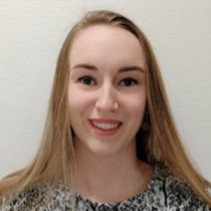 My name is Lena Luyckx and I am from Belgium. I began my scientific career at the Katholieke Universiteit of Leuven (Belgium), where I obtained my bachelor’s degree in Biomedical Sciences. During my studies, I developed a passion for reproductive biology, and I was able to broaden my knowledge about the topic during my master thesis year where I worked in the lab of Prof. Vriens (Laboratory of Endometrium, Endometriosis & Reproductive Medicine, KU Leuven). During this year, I used a knock-out mice model to study the role of calcium channels in endometrial functioning and early reproduction events. This allowed me to develop expertise in fertility studies with mice.
My name is Lena Luyckx and I am from Belgium. I began my scientific career at the Katholieke Universiteit of Leuven (Belgium), where I obtained my bachelor’s degree in Biomedical Sciences. During my studies, I developed a passion for reproductive biology, and I was able to broaden my knowledge about the topic during my master thesis year where I worked in the lab of Prof. Vriens (Laboratory of Endometrium, Endometriosis & Reproductive Medicine, KU Leuven). During this year, I used a knock-out mice model to study the role of calcium channels in endometrial functioning and early reproduction events. This allowed me to develop expertise in fertility studies with mice.
During my PhD, I will develop new in vivo and in vitro models for polycystic ovary syndrome (PCOS). Briefly, PCOS is a complex endocrine disorder that affects up to 10% of the female population. In PCOS, reproductive hormone imbalance and metabolic abnormalities lead to impaired endometrial function and thus fertility problems. Additionally, women with PCOS are often obese and have increased risk of developing type 2 diabetes and cardiovascular diseases. As details about the molecular pathophysiology of PCOS are still lacking, there is currently no cure for PCOS.
To facilitate further research and treatment development, in this project, I will establish a PCOS-like mouse model, in which I will investigate how PCOS affects early reproduction events such as endometrial decidualization and embryo implantation. Secondly, I will develop sustainable endometrial organoids from human PCOS samples. These will be characterized functionally and genetically and can be used for future research. As a third subproject, I will perform in vitro experiments on human and mouse endometrial cells to study how high androgen and insulin concentrations (both key features of PCOS) impact endometrial cell metabolism. Additionally, I will investigate how calcium signalling, which plays an important role in early reproduction events, is affected by androgens and insulin in vitro.
The outcomes of these projects will greatly advance our knowledge about PCOS and will ultimately enhance treatments for women with PCOS.
Industry Partner: IGENOMIX, Prof. Carlos Simón
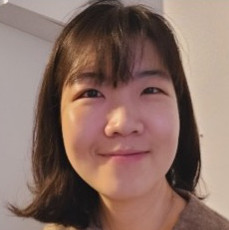 I’m Seungbaek Lee, and I am from the Republic of Korea. I hold a bachelor’s degree in Biology from Kyunghee university and a master’s degree in environmental toxicology from the University of Seoul. During my bachelor’s degree, my professors gave me various intellectual stimuli, and I was captivated by Microbiology and Ecotoxicology. It led me to graduate school, and I studied the relationship between the gut microbiome and a toxicant, Cadmium, using C.elegans. After graduation, I worked as a researcher for one and a half years at the department of gastroenterology, Samsung medical center in Seoul, South Korea, where I investigated the effect of syn-&postbiotics on IBS (irritable bowel syndrome). Through these various experiences, I realized that the infinite capacity of microbes and ‘Microbiome’ became an adorable word for me.
I’m Seungbaek Lee, and I am from the Republic of Korea. I hold a bachelor’s degree in Biology from Kyunghee university and a master’s degree in environmental toxicology from the University of Seoul. During my bachelor’s degree, my professors gave me various intellectual stimuli, and I was captivated by Microbiology and Ecotoxicology. It led me to graduate school, and I studied the relationship between the gut microbiome and a toxicant, Cadmium, using C.elegans. After graduation, I worked as a researcher for one and a half years at the department of gastroenterology, Samsung medical center in Seoul, South Korea, where I investigated the effect of syn-&postbiotics on IBS (irritable bowel syndrome). Through these various experiences, I realized that the infinite capacity of microbes and ‘Microbiome’ became an adorable word for me.
During my Ph.D., I will focus on mining inflammatory biomarkers for female reproductive outcomes with histological, microbiological, and OMICS approaches. In particular, my research projects will consist of PCOS (polycystic ovarian syndrome) and CE (chronic endometritis) representing female reproductive outcomes in terms of inflammation. I hope to add ‘uterus’ to the brain-gut axis, especially in terms of PCOS.
Undoubtedly, all research projects in the MATER consortium are meaningful and they will improve the quality of life for women in the world. I’m very honored to be a member of the marvelous consortium.
Publications:
Lee, S., Arffman, R. K., Komsi, E. K., Lindgren, O., Kemppainen, J., Kask, K., Saare, M., Salumets, A., & Piltonen, T. (2024). Dynamic changes in AI-based analysis of endometrial cellular composition: Analysis of PCOS and RIF endometrium. Journal of Pathology Informatics, 100364. https://doi.org/10.1016/j.jpi.2024.100364
Lee S., Tejesvi M.V., Hurskainen E., Aasmets O., Plaza-Díaz J., Franks S., Morin-Papunen L., Tapanainen J.S., Ruuska T.S., Altmäe S., Org E., Salumets A., Arffman R.K., Piltonen T.T. (2024). Gut bacteriome and mood disorders in women with PCOS. Human reproduction. https://doi.org/10.1093/humrep/deae073
Lee, S., Arffman, R. K., Komsi, E. K., Lindgren, O., Kemppainen, J. A., Metsola, H., Rossi, H., Ahtikoski, A., Kask, K., Saare, M., Salumets, A., & Piltonen, T. T. (2024). AI-algorithm training and validation for identification of endometrial CD138+ cells in infertility-associated conditions; polycystic ovary syndrome (PCOS) and recurrent implantation failure (RIF). Journal of Pathology Informatics, 100380. https://doi.org/10.1016/j.jpi.2024.100380
Industry Partner: INVICTA, Prof. Krzysztof Łukaszuk
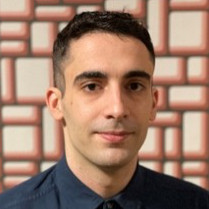 My name is Spyridon Panagiotis Deligiannis, and I come from Greece. My academic path started with a bachelor’s degree in molecular biology and Genetics obtained at the Democritus University of Thrace in Greece. During my undergraduate studies, I was exposed to a wide range of research, but what fascinated me the most was the field of reproduction. My passion for the field started from a 6-month internship in an In Vitro Fertilization (IVF) laboratory and followed by performing my thesis in (The effect of Oxidative stress in the outcome of IVF) and working in the IVF lab as an IVF lab Assistant.
My name is Spyridon Panagiotis Deligiannis, and I come from Greece. My academic path started with a bachelor’s degree in molecular biology and Genetics obtained at the Democritus University of Thrace in Greece. During my undergraduate studies, I was exposed to a wide range of research, but what fascinated me the most was the field of reproduction. My passion for the field started from a 6-month internship in an In Vitro Fertilization (IVF) laboratory and followed by performing my thesis in (The effect of Oxidative stress in the outcome of IVF) and working in the IVF lab as an IVF lab Assistant.
During the academic years 2016-2017 and 2018-2019, I explored the research aspect of science by conducting Masters in both the University of Dundee and the University of Edinburgh, respectively. During that time, I performed three research-based projects that allowed me to join three different laboratories. I also had the opportunity to perform research in different fields of Reproduction under the supervision of Dr Marios Stavridis (The effect of O-GlcNAc modification on human sperm capacitation); Professor Richard Anderson (The effect of Retinoic Acid synthesis in follicle activation); and Professor Rod Mitchell (The role of DHX37 in human fetal testis development).
During my PhD studies, I will focus on the viability of mammalian IVF-derived embryos. The frequently observed chromosomal aberrations in IVF embryos prevent the transferred embryos to establish successful pregnancy and are therefore one of the main obstacles in obtaining the IVF
pregnancy. Therefore, I will study the association between RNA-profiles of IVF-derived embryos’ chromosomal integrity. Furthermore, this research aims to provide a new approach of non-invasive Pre-implantation Genetic Testing for Aneuploidies (niPGT-A).
Publications:
Boskovic, N., Yazgeldi, G., Ezer, S., Tervaniemi, M.H., Inzunza, J., Deligiannis, S. P., Yaşar, B., Skoog, T., Krjutškov, K., Katayama, S. and Kere, J. (2023). Optimized single-cell RNA sequencing protocol to study early genome activation in mammalian preimplantation development. 4(3), pp.102357–102357. https://doi.org/10.1016/j.xpro.2023.102357
Deligiannis, S. P., Kask, K., Modhukur, V., Boskovic, N., Ivask, M., Jaakma, Ü., Damdimopoulou, P., Tuuri, T., Velthut-Meikas, A., & Salumets, A. (2024). Investigating the impact of vitrification on bovine ovarian tissue morphology, follicle survival, and transcriptomic signature. Journal of Assisted Reproduction and Genetics. https://doi.org/10.1007/s10815-024-03038-4
Industry Partner: Competence Centre on Health Technologies, Dr. Maire Peters
 My name is Nina and I am from Montenegro. My interest in the field of reproductive health started during my BSc degree in Biology at the University of Montenegro. During this time, I took the initiative to further my knowledge in reproduction and molecular biology by volunteering at a local fertility hospital and in the Institute for Health Protection of Mother and Child in Belgrade, Serbia. After my BSc degree I pursued a Master’s degree in Clinical Embryology at the University of Oxford. My MSc research project was to investigate the impact of various thawing conditions on the health of human ovarian stromal cells, which I did under the supervision of Dr. Suzannah Williams.
My name is Nina and I am from Montenegro. My interest in the field of reproductive health started during my BSc degree in Biology at the University of Montenegro. During this time, I took the initiative to further my knowledge in reproduction and molecular biology by volunteering at a local fertility hospital and in the Institute for Health Protection of Mother and Child in Belgrade, Serbia. After my BSc degree I pursued a Master’s degree in Clinical Embryology at the University of Oxford. My MSc research project was to investigate the impact of various thawing conditions on the health of human ovarian stromal cells, which I did under the supervision of Dr. Suzannah Williams.
During my PhD I will focus on the influence environmental factors have on the embryonic genome integrity (EGA). Previous research has indicated that mammalian IVF embryos often suffer from chromosomal aberrations and failure to activate the embryonal genome expression. My aim is to understand the effect different IVF embryo culture conditions have on chromosomal instability and EGA using bovine embryos as model organism for this study. The overall aim of the study is to provide answers for critical questions: “How in vitro manipulations affect genetic health of embryos and how the identified risk factors and their possible elimination would help us to make IVF conditions more favourable towards improving the effectiveness of infertility treatment and increasing the overall safety of the entire procedure”.
Publications:
Boskovic, N., Yazgeldi, G., Ezer, S., Tervaniemi, M.H., Inzunza, J., Deligiannis, S. P., Yaşar, B., Skoog, T., Krjutškov, K., Katayama, S. and Kere, J. (2023). Optimized single-cell RNA sequencing protocol to study early genome activation in mammalian preimplantation development. 4(3), pp.102357–102357. https://doi.org/10.1016/j.xpro.2023.102357
Deligiannis, S. P., Kask, K., Modhukur, V., Boskovic, N., Ivask, M., Jaakma, Ü., Damdimopoulou, P., Tuuri, T., Velthut-Meikas, A., & Salumets, A. (2024). Investigating the impact of vitrification on bovine ovarian tissue morphology, follicle survival, and transcriptomic signature. Journal of Assisted Reproduction and Genetics. https://doi.org/10.1007/s10815-024-03038-4
Industry Partner: Competence Centre on Health Technologies, Dr. Kaarel Krjutškov
 My name is Yan Zhao and I come from China. I obtained my bachelor’s degree in Preventive Medicine and master’s degree in in Public Health at Xi’an Jiaotong University, China. During my postgraduate study, I have some scientific experience with bioinformatics analysis, and I found it is quite interesting.
My name is Yan Zhao and I come from China. I obtained my bachelor’s degree in Preventive Medicine and master’s degree in in Public Health at Xi’an Jiaotong University, China. During my postgraduate study, I have some scientific experience with bioinformatics analysis, and I found it is quite interesting.
Now I am doing the MATER ESR11 project with the supervision of Prof. Dr. Joris Vermeesch and Prof. Ants Kurg. Within this doctoral project, I will try to uncover the mechanisms of chromosomal instability in preimplantation bovine embryos mainly through bioinformatics analysis of the genome and transcriptome data. I will try to develop cheaper and faster approaches for examining the genomes of individual cells. And I will also examine the incidence and mechanisms of chromosomal rearrangements and mutations.
I hope this promising doctoral project will offer more insights into the mutational spectrum occurring during early embryo development. Further unravelling the mechanisms of chromosome instability of embryos before transfer can help to improve the survival rate of in-vitro fertilization (IVF) embryos and decrease the rate of abnormal pregnancies. This has very important practical significance and can benefit both individual family and the whole society.
Publications:
Van Riel, M., Zhao, Y., Jatsenko, T., Lannoo, L., Timmerman, D., & Vermeesch, J. R. (2023). Ultrasensitive Microhaplotype-Based detection of minor alleles in cervical samples of pregnant women identifies sperm rather than fetal DNA. Clinical Chemistry, 69(9), 1089–1091. https://doi.org/10.1093/clinchem/hvad107
De Coster, T., Zhao, Y., Tšuiko, O., Demyda-Peyrás, S., Van Soom, A., Vermeesch, J. R., & Smits, K. (2024). Genome-wide equine preimplantation genetic testing enabled by simultaneous haplotyping and copy number detection. Scientific Reports, 14(1). https://doi.org/10.1038/s41598-023-48103-7
Industry Partner: Competence Centre on Health Technologies, Dr. Kaarel Krjutškov
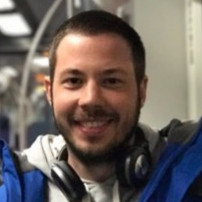 My name is Barış Yaşar and I am from Turkey. I have received my degree of Bachelor of Science (B.Sc.) in Molecular Biology and Genetics at Bilkent University. I have completed the Molecular Biosciences degree programme at Heidelberg University and gained my academic degree Master of Science (M.Sc.) in Germany. For my doctoral studies, I have started the joint Ph.D. from the European Union’s Horizon 2020 research and innovation program programme under the Marie Sklodowska-Curie grant agreement at the University of Tartu and Karolinska Institutet.
My name is Barış Yaşar and I am from Turkey. I have received my degree of Bachelor of Science (B.Sc.) in Molecular Biology and Genetics at Bilkent University. I have completed the Molecular Biosciences degree programme at Heidelberg University and gained my academic degree Master of Science (M.Sc.) in Germany. For my doctoral studies, I have started the joint Ph.D. from the European Union’s Horizon 2020 research and innovation program programme under the Marie Sklodowska-Curie grant agreement at the University of Tartu and Karolinska Institutet.
My research focuses on the early development of bovine in vitro fertilization (IVF) embryos. The goal of my project is to investigate the preimplantation embryonic development in bovine IVF embryos in order to gain more insight as to how developmental programs are maintained in mammalians. I am taking the advantage of single-cell RNA sequencing (scRNA-seq) technique in order to analyze the transcriptional profiles of individual cells from embryos. Because of the resemblance of in vitro manipulations, procedures, and biology of bovine IVF embryo to that of human, bovine IVF embryo is a great alternative to studying embryogenesis as human IVF embryo studies have restrictions due to ethical concerns.
Analysis of single-cell RNA sequencing data from different developmental stages of bovine IVF embryo during preimplantation, and its comparison to available human and mouse embryo datasets is likely to bring new knowledge. This is expected to reveal differences and similarities in transcriptional profiles between human, mouse, and bovine embryos. This analysis will potentially demonstrate novel transcripts and/or regulations of transcripts with specific functions critical to embryo development.
Publications:
Boskovic, N., Yazgeldi, G., Ezer, S., Tervaniemi, M.H., Inzunza, J., Deligiannis, S. P., Yaşar, B., Skoog, T., Krjutškov, K., Katayama, S. and Kere, J. (2023). Optimized single-cell RNA sequencing protocol to study early genome activation in mammalian preimplantation development. 4(3), pp.102357–102357. https://doi.org/10.1016/j.xpro.2023.102357
Industry Partner: INVICTA, Prof. Krzysztof Łukaszuk
 My name is Kate Stanley and I am a Belgian-born Irish American. I received a BA from Columbia University and a MSc from Oxford University. To date, my research has focused on elucidating the monogenic causes of rare developmental disease via case-control analysis in exome sequencing data. More recently, during my master’s degree, I explored the potential impact of COVID-19 on reproductive health. I will now pursue doctoral training jointly at KU Leuven (Belgium) and the Karolinska Institute (Sweden) where I will work on expanding the diagnostic utility of genome-wide cfDNA analysis during pregnancy.
My name is Kate Stanley and I am a Belgian-born Irish American. I received a BA from Columbia University and a MSc from Oxford University. To date, my research has focused on elucidating the monogenic causes of rare developmental disease via case-control analysis in exome sequencing data. More recently, during my master’s degree, I explored the potential impact of COVID-19 on reproductive health. I will now pursue doctoral training jointly at KU Leuven (Belgium) and the Karolinska Institute (Sweden) where I will work on expanding the diagnostic utility of genome-wide cfDNA analysis during pregnancy.
My PhD project aims to develop a novel bioinformatic pipeline for the non-invasive testing of maternal and fetal health. In particular, my project aims to identify stable genomic signatures associated with placenta-related pregnancy complications that can be used for disease risk prediction in the first trimester. This framework will also be extended to Mendelian disorders of the epigenetic machinery which are expected to have a broad effect on cfDNA fragmentation patterns. It is our hope that genome-wide cfDNA profiles may be used as an early predictive marker for certain placental and developmental diseases.
Publications:
Stanley, K. E., Jatsenko, T., Tuveri, S., Sudhakaran, D., Lannoo, L., Van Calsteren, K., De Borre, M., Parijs, I., Van Coillie, L., Van Den Bogaert, K., Toledo, R. A., Lenaerts, L., Tejpar, S., Punie, K., Rengifo, L. Y., Vandenberghe, P., Thienpont, B., & Vermeesch, J. R. (2024). Cell type signatures in cell-free DNA fragmentation profiles reveal disease biology. Nature Communications, 15(1). https://doi.org/10.1038/s41467-024-46435-0
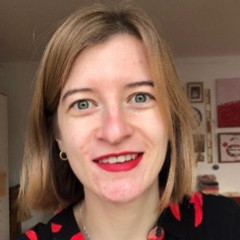 My name is Maria and I am from the Netherlands. I have a bachelor’s degree in Cultural Anthropology and Development Sociology and a research master’s degree in Social Sciences (cum laude) from the University of Amsterdam. During my bachelor’s degree, I spent an exchange semester at Newcastle University. My specializations are medical anthropology and gender studies. I am mainly interested in the socio-cultural and ethical sides of health and medicine, particularly regarding reproduction. By looking at the ethics and socio-cultural experiences of reproductive technologies, important concerns around the manufacturability of life, what it means to be healthy, and issues of gender, race and class can be investigated. For my master thesis, I looked at the experiences of Dutch heterosexual couples diagnosed with male infertility who have a child through donor sperm treatment. Furthermore, I did an internship at the Dutch Ministry of Foreign Affairs working on the topic of health (in particular sexual and reproductive health and rights) within social development cooperation, where I learned to look at ethical and socio-cultural issues around reproduction from a different perspective.
My name is Maria and I am from the Netherlands. I have a bachelor’s degree in Cultural Anthropology and Development Sociology and a research master’s degree in Social Sciences (cum laude) from the University of Amsterdam. During my bachelor’s degree, I spent an exchange semester at Newcastle University. My specializations are medical anthropology and gender studies. I am mainly interested in the socio-cultural and ethical sides of health and medicine, particularly regarding reproduction. By looking at the ethics and socio-cultural experiences of reproductive technologies, important concerns around the manufacturability of life, what it means to be healthy, and issues of gender, race and class can be investigated. For my master thesis, I looked at the experiences of Dutch heterosexual couples diagnosed with male infertility who have a child through donor sperm treatment. Furthermore, I did an internship at the Dutch Ministry of Foreign Affairs working on the topic of health (in particular sexual and reproductive health and rights) within social development cooperation, where I learned to look at ethical and socio-cultural issues around reproduction from a different perspective.
For my PhD project, I am looking at the ethical and social challenges of reproductive genetic technologies. Specifically, I am focussing on the perspectives of various stakeholders on the ethics of broadening the scope of preimplantation genetic testing (PGT) and the use of polygenic risk scores in PGT (PGT-P). Preimplantation genetic testing can be used to prevent offspring from having certain genetic conditions or to improve reproductive success. While PGT has generally been used for childhood-onset and lethal conditions, the possibility of using PGT for adult-onset conditions, conditions with varying penetrance and with possible treatment options is increasing. Furthermore, PGT might also possibly be used for non-medical traits. With PGT-P, risk scores of embryos for developing complex ‘polygenic’ disorders (e.g. coronary artery disease, breast cancer and diabetes) compared to the general population are calculated. At this moment, PGT-P is not yet used by health professionals and no guidelines for the use of PGT-P in healthcare have been developed. However, there are some companies that have started offering PGT-P to individuals. An analysis of the perspectives of stakeholders is necessary in order to provide a critical ethical evaluation that can lead to the development of guidelines for PGT-P. This project uses qualitative research methods such as in-depth interviews to get insights into the perspectives of stakeholders. This is a joint PhD project between KU Leuven and the University of Helsinki. I am mainly based at the Centre for Biomedical Ethics and Law at KU Leuven.
Publications:
Pagnaer, T., Siermann, M., Borry, P. et al. Polygenic risk scoring of human embryos: a qualitative study of media coverage. BMC Med Ethics 22, 125 (2021). https://doi.org/10.1186/s12910-021-00694-4
Siermann, M., Claesen, Z., Pasquier, L., Raivio, T., Tšuiko, O., Vermeesch, J. R., & Borry, P. (2022). A systematic review of the views of healthcare professionals on the scope of preimplantation genetic testing. Journal of Community Genetics, 13(1), 1–11. https://doi.org/10.1007/s12687-021-00573-w
Siermann, M., Tšuiko, O., Vermeesch, J. R., Raivio, T., & Borry, P. (2022). A review of normative documents on preimplantation genetic testing: Recommendations for PGT-P. Genetics in Medicine, 24(6), 1165–1175. https://doi.org/10.1016/j.gim.2022.03.001
Siermann, M., Valcke, O., Vermeesch, J. R., Raivio, T., Tšuiko, O., & Borry, P. (2023). Limitations, concerns and potential: attitudes of healthcare professionals toward preimplantation genetic testing using polygenic risk scores. European Journal of Human Genetics. https://doi.org/10.1038/s41431-023-01333-9
Siermann, M., Valcke, O., Vermeesch, J. R., Raivio, T., Tšuiko, O., & Borry, P. (2024). “Are we not going too far?“: Socio-ethical considerations of preimplantation genetic testing using polygenic risk scores according to healthcare professionals. Social Science & Medicine, 343, 116599. https://doi.org/10.1016/j.socscimed.2024.116599
Siermann, M., Van Der Schoot, V., Bunnik, E. M., & Borry, P. (2024). Ready for polygenic risk scores? An analysis of regulation of preimplantation genetic testing in European countries. Human Reproduction. https://doi.org/10.1093/humrep/deae049


